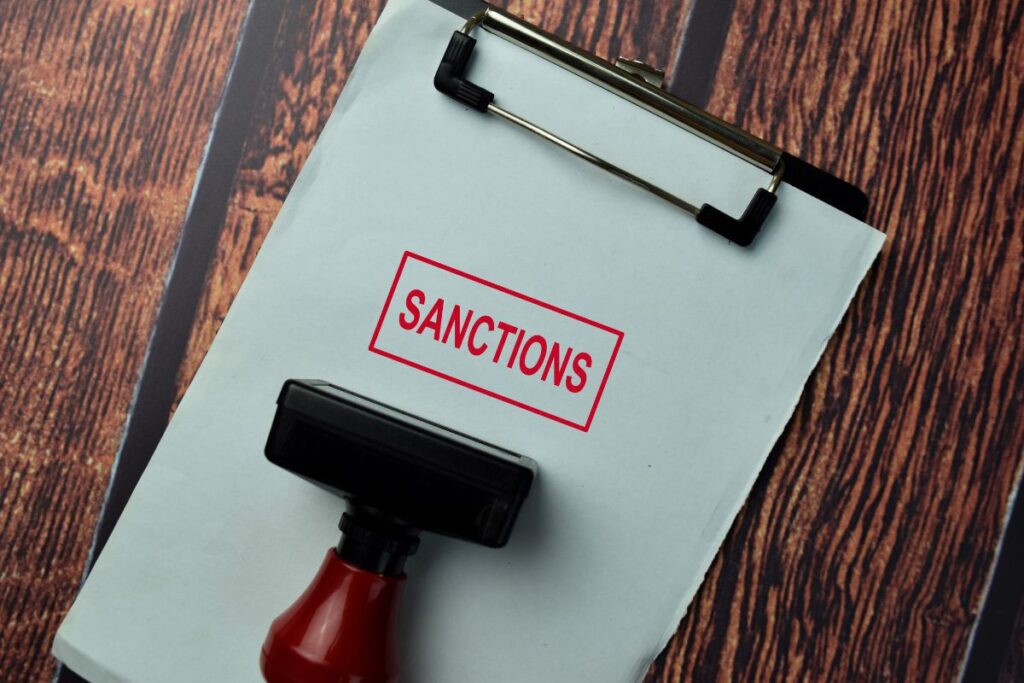The Texas Behavioral Health Executive Council (BHEC) is a state agency that the Texas legislature created in 2019 to license and oversee some professions related to behavioral health. The Council consists of the following licensing boards:
- Texas State Board of Examiners of Marriage and Family Therapists
- Texas State Board of Examiners of Professional Counselors
- Texas State Board of Examiners of Psychologists
- Texas State Board of Social Work Examiners
All complaints concerning professionals that each of these boards licenses go through the Council to the appropriate licensing board. If a violation of a rule, law, or policy leads to a complaint and potential disciplinary action against you as a licensed behavioral health professional, you must take immediate steps to protect yourself and your license. Having a professional counselor license defense lawyer on your side can make a significant difference in the overall outcome of your case.
BHEC Disciplinary Sanction Guidelines in General
Under 22 Tex. Admin. Code §884.20, BHEC has established standard disciplinary sanction guidelines for all four licensing boards under its purview. These standardized guidelines aim to promote consistent sanctions for similar violations, encourage settlement, and timely facilitate the resolution of disciplinary cases.
The standard disciplinary sanctions apply to single violations of the laws and rules that apply to the professions that BHEC regulates in which no aggravating or mitigating factors exist. However, BHEC may impose more severe or restrictive sanctions if a case involves multiple violations. Likewise, the standard and minimum sanctions listed in the guidelines are also appropriate for individuals facing a first-time violation. Therefore, individuals who have committed violations in the past could face more severe or restrictive sanctions.
Each violation is a separate offense, even if it arises from the same act, and is a separate offense for each day the violation continues. Failure to list a specific violation in this section of the Code does not prohibit BHEC from disciplining a license holder for the violation. Without a specifically stated sanction for violating a state or federal law, the sanction shall be a reprimand and administrative penalty. In any case, the maximum sanction for any violation is license revocation and an administrative penalty of up to $5,000 per violation.
Standard Disciplinary Sanctions
BHEC’s standard disciplinary sanctions include the following, from the most severe sanction to the least severe sanction:
- License revocation;
- License suspension for a specific period;
- License suspension for probation for any or all of the suspension period;
- License probation for a specific period;
- Reprimand; and
- Administrative penalty.
BHEC also may impose specific restrictions or conditions on an individual’s license. These restrictions or conditions may include the following:
- Consultation with a licensed professional on matters of ethics rules, laws, and standards;
- Restrictions on the license holder’s ability to treat certain classes of patients or provide certain types of services;
- Restrictions on the license holder’s ability to supervise others in a particular area of practice;
- Completion of an additional number of continuing education hours on specific topics;
- Taking and passing any specific examination with a required score; and
- Undergoing a medical or psychological evaluation by a licensed professional approved by BHEC and completing any treatment recommended by that professional.
This Code section also lists various mitigating and aggravating factors that could affect the severity of the sanctions imposed for violations of rules or laws that apply to license holders.
Aggravating factors may increase the severity of the license holder’s conduct and, therefore, may warrant a more serious sanction. Examples of aggravating factors include resulting physical or emotional harm, premeditated or intentional conduct, prior written warnings, admonishments, or misconduct, failure to implement remedial measures, and a lack of rehabilitative effort or potential.
On the other hand, mitigating factors are those factors that decrease the severity of the conduct at issue and therefore reduce the potential sanction. Examples of mitigating factors include accepting responsibility, self-reporting unprofessional conduct, implementing remedial measures to correct or mitigate harm arising from the unprofessional conduct, good-faith motive, rehabilitative efforts, or potential, and prior community service.
Standard Sanctions for Specific Rule Violations
22 Tex. Admin. Code §884.20(c) outlines some common rule violations and the standard sanctions that BHEC prescribes for those violations. These violations and sanctions are as follows:
Click to contact our professional license defense lawyers today
Violation Sanction
$883.20 – Display of License Administrative Penalty
- 883.21 – Advertising Restrictions Reprimand
- 883.22 – Duty to Update Name and Address Administrative Penalty
- 883.23 – Disclosure of Propriety Examination Suspension
Materials or Information Prohibited
- 883.24 – Filing of False or Misleading Information Suspension
with BHEC
- 883.30 – Cooperation with BHEC Investigations Suspension
- 884.31 – Notice to the Public of Complaint Process Administrative Penalty
- 884.32 – Reportable Legal Action and Discipline Administrative Penalty
Complete a Case Evaluation form now
We will Stand Up for Your Rights and Fight for Your Professional License
You can count on the experienced social worker license defense lawyers at Bertolino LLP, to defend you when you receive notice of disciplinary action against your professional license. We will investigate the circumstances that led to your disciplinary proceedings and devise the best strategy for your case. In addition, we will work to clear your name and ensure your professional license remains intact. Call us at (512) 515-9518 or contact us online.
Call or text (512) 476-5757 or complete a Case Evaluation form





